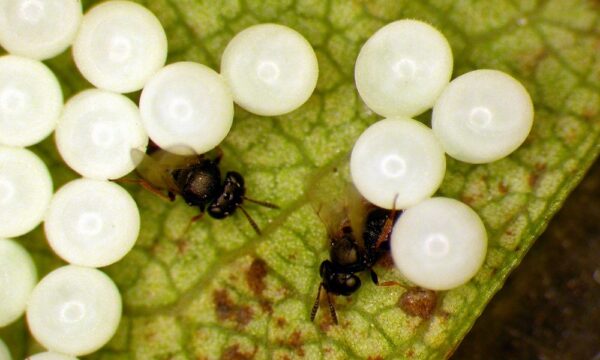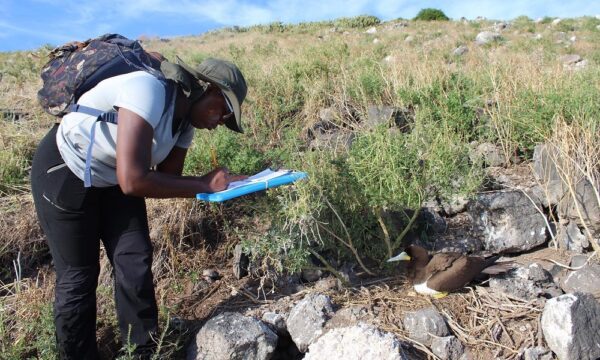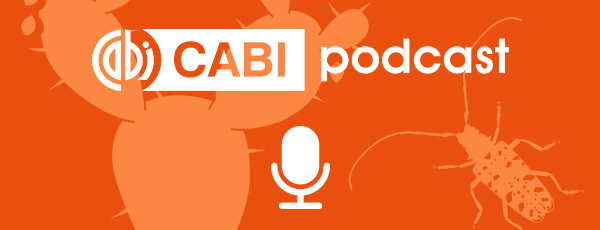
On Sunday 22 May 2022 the world celebrates International Day for Biological Diversity – a day in which the global community is called to re-examine our relationship to the natural world.
The theme in 2022 is ‘Building for a shared future for all life’ and fits into the context of the ongoing United Nations Decade on Restoration. This highlights how biodiversity is the answer to several sustainable development challenges and the slogan relays how biodiversity is the foundation upon which we can ‘build back better.’
This is particularly important in respect of ecosystem-based approaches to climate and/or nature-based solutions to climate, health issues, food and water security and sustainable livelihoods.
Biological diversity resources are the pillars upon which we build civilizations. Fish provide 20% of animal protein to about 3 billion people. Over 80% of the human diet is provided by plants. As many as 80% of people living in rural areas in developing countries rely on traditional plant‐based medicines for basic healthcare.
CABI is helping to achieve United Nations Sustainable Development Goal (SDG) 15: Life on Land through its scientific work to combat invasive alien species.
For example, fall armyworm is a highly invasive pest that causes enormous damage to maize, the key staple food for 300 million African farmers. It has spread across 44 African countries, and in Kenya alone at least three in five farmers are affected annually with about half the maize crop lost to fall armyworm every season.
CABI scientists are working to stop its spread through international and national response planning, biological control research and development and educational outreach to at-risk communities so that community food loss is minimised.
CABI has also provided its expertise on the importance of philanthropy in protecting biodiversity and all life on land – as well as how to prevent the introduction of invasive alien species – in a guide produced by Swiss bank UBS.
The publication, entitled ‘Seeds of Change: a guide for philanthropists and changemakers to protect biodiversity and all life on land,’ serves to help UBS’s stakeholders understand the scale of the problem in protecting biodiversity and the environment and, therefore, achieving SDG 15.

As part of International Day for Biological Diversity, CABI would like to share the Geographical magazine article ‘Dossier: the rising threat of invasive species,’ by Mark Rowe in which CABI is referenced and Dr Arne Witt, Invasives Coordinator, South, is quoted.
This article is also shared in recognition of Invasive Species Week which is an annual national UK event to raise awareness of the impacts of invasive non-native species and runs until Sunday 22 May. The article looks at the rise of invasive species and the impact of climate change on the spread and distribution of invasive species – be they plants, crop pests or pathogens. You can read the article in full here.
Additional information
Main image: Chromolaena odorata, commonly known as ‘Devilweed’ is just one invasive weed which can have a detrimental impact of native biodiversity (Credit: ©J.M. Garg/via wikipedia – CC BY 3.0).
About International Day for Biological Diversity
As the global community is called to re-examine our relationship to the natural world, one thing is certain: despite all our technological advances we are completely dependent on healthy and vibrant ecosystems for our water, food, medicines, clothes, fuel, shelter and energy, just to name a few.
The theme in 2022 is “Building a shared future for all life”. Fitting within the context of the ongoing United Nations Decade on Restoration, which highlights that biodiversity is the answer to several sustainable development challenges, the slogan conveys the message that biodiversity is the foundation upon which we can build back better.
From ecosystem-based approaches to climate and/or nature-based solutions to climate, health issues, food and water security and sustainable livelihoods, biodiversity is the foundation upon which we can build back better. That is the main message from the Convention on Biological Diversity (CBD), key international instrument for sustainable development.
Find out more here.
CABI Invasive Species
Discover more about some of the worst types of invasive species threatening biodiversity and the environment across the world. For more detailed information, CABI’s invasive species tools and resources bring together a wide range of science-based information to support the public, researchers and policy makers in managing invasive species.
For more information visit https://www.invasive-species.org/species/
Related News & Blogs
Biodiversity loss: How can we reclaim our landscapes from threats to biodiversity?
On 22nd May, we mark the International Day for Biological Diversity. In this article, CABI’s Global Director for Invasive Species Dr Hariet Hinz looks at how we can reclaim our landscapes from threats to biodiversity. Biodiversity loss is proceeding at…
22 May 2025




